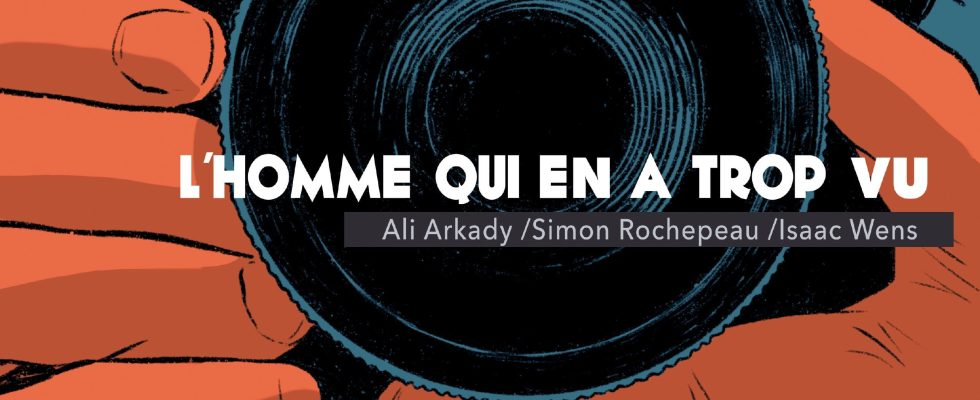Would the complicated Orient have found its preferred medium in the simplicity of comics? After The Arab of the future by Riad Sattouf, Dissident Club of Taha Siddiqui, to only talk about the two albums I talked to you about here, and before Rwama by Salim Zerrouki about whom I will tell you later, here is The man who has seen too much by Ali Arkady, Simon Rochepeau and Isaac Wens, published this month by Futuropolis.
The man in question is Ali Arkady, born in Iraqi Kurdistan in October 1982, he grew up during the Iran-Iraq war (1980-1988). “I remember the darkness in the air raid shelters where my family took refuge. My mother told me bedtime stories, while my father, an artist, practiced Arabic calligraphy by candlelight.” The helicopters, the stray bullets, the ruined streets where dogs devour corpses, “that’s how it was”. Between two massacres of the Kurdish population perpetrated by Saddam Hussein, Ali Arkady’s family moved, and it continued with the Gulf War, I am not going to recount all the wars he went through, I would no longer have the place to talk about his album which begins on October 16, 2016, in the car which takes him to the Qayyarah military base 90 kilometers south of Mosul then held by the Islamic State group and the forces of the national inter-ethnic coalition are are preparing to attack and that Ali Arkady must follow as photographer reporter. As if he hadn’t seen enough yet, pillaging, torture, war crimes of all kinds, as if he now wanted to immortalize the dead.
Very quickly, we no longer ask ourselves the question of the graphic quality of the work, it is only when we come across the double pages like 26-27 or 44-45, perhaps because they are inspired by the photos taken by Arkady, which we stop reading to look at the color of the sand, the fatigues, a white flag, an AC Milan t-shirt, and the captagon stamp that we offer him.
The real trouble begins…
The reporter photographs and records everything, he approaches the truth of the war, drawn in by the terror it inspires in him. He would already have more than enough to make a good report, but he continues, and when all his colleagues return to civilization to take advantage of the risks they have taken enough, he, under the pretext of “doing his job until the end”, he decides to stay with the army, to advance on Mosul with the future victors, and to see what is happening on the good side of the war, that of the liberators. He does not wonder why the officers let him photograph the mistreatment that their soldiers unnecessarily inflict on populations suspected of collusion with Daesh, he believes himself protected by his friendship with the leader.
From testimony to connivance, from connivance to complicity, it is already too late: Ali Arkady has become the hostage of the one with whom he believed he shared his destiny. If he wants to save his skin, it will be at the cost of his soul. For the one who has gone through all the wars like a fish through the cracks, the real troubles begin…
At the other end of the complicated Middle East, in Algeria, things are hardly more joyful, and barely less violent. In RwamaSalim Zerrouki recounts his life, he announces several volumes, a series which would why not be as long as The Arab of the future by Riad Sattouf who also published his first series with Dargaud. Moreover, both authors were born in 1978. The comparisons stop where Zerrouki’s graphic art begins, more inventive, richer than that of Sattouf, and his adventures as a little boy more involved in the political history of the Algeria, infinitely more turbulent than that of Syria was under the atrociously stable reign of Hafez el Assad. Two faces of Arab social fascism, infested with Marxism and Islamism, equally hideous. We can’t wait to read the next volume of Rwama which, in Algerian, means “the French”.
.
